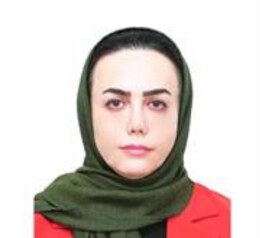Singapore Public Health & Nursing Leadership Conference
SPHC 2026
THEME: "Innovating for Tomorrow: Shaping the Future of Public Health"
 14-15 Sep 2026
14-15 Sep 2026  Singapore
Singapore THEME: "Innovating for Tomorrow: Shaping the Future of Public Health"
 14-15 Sep 2026
14-15 Sep 2026  Singapore
Singapore 
Mazandaran University of Medical Sciences, Iran
Title: Use of Protection Motivation Theory to Assess Preventive Behaviors of COVID-19
Maryam Khazaee was born in Nowshahr-a city in Mazandaran, north of Iran. She is a faculty member of Mazandaran University of Medical Science. Her research interests are Breast cancer Prevention, Addiction in Women, SEM analysis and Instrument developing. She deliberately conducts research that has implications for theory-building as well as relevance for practice.
Background:
The global prevalence and morbidity of Coronavirus disease 2019 (COVID-19) are high. Preventive behaviors are proven to reduce the damage caused by the disease. There is a paucity of information on determinants of preventive behaviors in response to COVID-19 in Mazandaran province, north of Iran. So, we aimed to evaluate protection motivation theory (PMT) in promoting preventive behaviors of COVID-19 in Mazandaran province.
Materials and methods:
In this descriptive cross-sectional study, 1220 individuals participated. They were selected via social networks using convenience sampling. Data were collected online using a demographic questionnaire and a valid and reliable scale based on PMT. Data analysis was done using Pearson correlation coefficient and linear regression in SPSS V24.
Result:
Mean age of the participations was 39.34±8.74 years. Regression model showed perceived threat (ß =0.033, P =0.007), perceived costs (ß=0.039, P=0.045), perceived self-efficacy (ß =0.116, P>0.001), and perceived fear (ß=0.131, P>0.001) as the significant predictors of COVID-19 preventive behaviors. This model accounted for 78% of the variance in these behaviors.
Conclusion:
According to constructs of the PMT associated with protection against COVID-19, educational programs and health promotion based on the theory and benefiting from social networks could be helpful in increasing the motivation of people towards protective behaviors of COVID-19.
Keywords: Questionnaire Development, Validation, Intention, Prevention, COVID-19